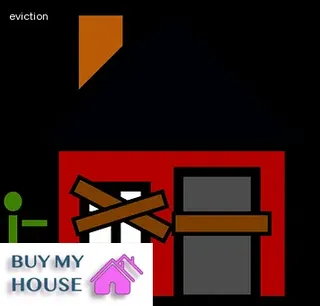Adverse possession is a legal concept that applies when an individual takes possession of an unoccupied, abandoned, or neglected property without permission from the owner. In Montana, adverse possession allows a person who meets certain criteria to take ownership of a property after occupying it for a defined period of time.
To successfully claim adverse possession in Montana, the squatter must demonstrate that they have exclusive and continuous use of the property for at least five years and have paid all applicable taxes on the property during this time. Additionally, the squatter must prove that they have made significant improvements to the property as well as have openly used it as their own by displaying signs or fencing off sections of land.
If these criteria are met, then the squatter may be able to claim legal ownership of the property under Montana's adverse possession laws.

Hostile possession is an important concept to understand when it comes to squatter's rights in Montana. It is a legal term that refers to the acquisition of property by occupying it without permission from the owner or landlord.
This means that if a person moves into an abandoned building, they may be able to establish legal ownership of the property under certain conditions. In Montana, hostile possession laws are complex and depend on the circumstances.
Generally speaking, a squatter must possess the land for at least five years before claiming ownership, must pay all taxes and assessments during that time period, and must not have received any direct notice from the rightful owner regarding their occupancy of the property. If these criteria are met, then a court may find in favor of the squatter's claim of ownership over the property.
However, squatters should bear in mind that hostile possession does not guarantee ownership; even if they meet all requirements, there is no guarantee that a court will rule in their favor. Additionally, squatting can also result in criminal charges if trespassing laws are violated while attempting to claim possession of a property.
Understanding hostile possession and its potential implications is key for anyone considering squatting as an option for housing in Montana.
Actual possession is an important factor in understanding anti-squatting laws in Montana. It refers to the physical presence of a person within a property and it is used to determine whether or not a person has the right to occupy a space.
In order for someone to have actual possession of a property, they must show that they have taken control over the land, such as by living in it or making improvements to it. This could include things like securing the premises with locks, rebuilding structures on the property, planting gardens, and paying bills associated with the property.
Actual possession is oftentimes essential for proving ownership of a space and making sure squatters do not gain any legal rights to occupy it without permission from its rightful owner.

In Montana, open and notorious possession is a legal concept that serves as a basis for recognizing the rights of squatters. Open and notorious possession means that if a squatter openly takes possession of property in Montana, they are afforded certain rights under the law.
To be considered as possessing a property openly and notoriously, the squatter must act in such a manner that it is known to both the public and the original owner of the property that they are on or occupying it. The squatter must also have a good faith belief that they own or have permission to occupy the land.
Open and notorious possession can be established through acts such as constructing or living in an unauthorized structure on someone else’s property, using another’s land for grazing livestock, or paying taxes on another’s property. If open and notorious possession is successfully established, then squatters may be able to establish an ownership claim to the land after a certain amount of time has passed.
Understanding open and notorious possession can help individuals determine their rights when it comes to housing possession laws in Montana.
In Montana, squatters have the right to exclusive possession of a property they occupy. This means that they are entitled to the same protections against trespassers as any other property owner.
To qualify for exclusive possession, a squatter must show that they have been occupying a property continuously and openly for at least six months, during which time they must have paid any applicable taxes or fees associated with the property. They must also demonstrate that they have made certain improvements to the land, such as constructing buildings or making repairs.
Additionally, if the true owner does not file a claim against the squatter within three years of their occupancy of the property, then the squatter can gain title to it through adverse possession. Understanding these laws is important for anyone who may find themselves in need of housing in Montana and wants to know their rights when it comes to exclusive possession of land and properties.

When exploring continuous possession under Montana law, it is important to understand the legal definition of "squatter's rights" and how they apply to housing possession in the state. Squatter's rights refer to a person's ability to obtain legal ownership of a property they have continuously occupied for an extended period of time, as long as certain conditions are met.
In Montana, the law requires that a squatter has to possess the property continuously for at least five years before they can be considered the legal owner. This means that someone must occupy and use the property every day over that five-year period – any breaks in residence will reset the clock and nullify any progress made toward claiming ownership.
To further complicate matters, squatters must also pay all applicable taxes on their properties during this time or risk having their claim invalidated. Additionally, if another person has a valid title or deed for the property, squatters cannot claim ownership regardless of how long they have been onsite.
Understanding these laws is vital to ensure that those seeking housing possession can do so legally and without issue.
In Montana, the concept of "color of title" is recognized in certain situations, allowing squatters to gain legal possession of a property. This is a unique approach that few other states have adopted as a means of protecting those living in housing who do not possess the official documentation required to prove ownership.
According to state law, if an individual has been living on the property for more than five years and can produce some form of proof indicating they have made improvements or constructed buildings on the land, they may be able to establish color of title. In some cases, simply paying taxes on the property for five consecutive years can also qualify an individual for color of title status.
However, this does not apply to all properties regardless of whether or not a person has met the five-year requirement - it is usually only applicable for residential properties. Additionally, even if someone is successful in establishing color of title, it does not necessarily mean that they will be given full ownership rights; rather, it typically grants them possession rights which must be respected by any other party with a legitimate claim to the land.

Squatters in Montana can cause a lot of distress for homeowners, but there are strategies that you can use to protect yourself. Firstly, it is important to understand the laws surrounding squatter's rights in order to gain a better understanding of what measures you can take.
Knowing which laws apply in your area will help you remain aware of the rights that squatters have and ensure that you are taking the right steps to prevent them from taking up residence on your property. Secondly, having a clear plan of action is essential - if squatters do become an issue, knowing what steps to take can make all the difference.
This could include alerting local authorities or legal representatives and ensuring that any necessary paperwork is filed correctly. Finally, being vigilant and keeping watch over your property is also important - by making regular checks and monitoring any activity around your home, you can stay one step ahead of any potential squatters.
Understanding Squatter's Rights In Montana can be an especially difficult endeavor, particularly when evaluating the pros and cons of Color of Title Claims. When a person occupies a piece of real estate in Montana without the permission or authorization from the owner, they may be able to establish what is known as Color of Title Claim.
The benefit to this type of claim is that it may allow squatter's to gain legal possession and ultimately title to the property. However, this type of claim does require that certain conditions are met, including proving that the squatter has been in continuous possession for five years or longer and paying all taxes due on the property.
Even with these requirements satisfied, a successful Color of Title claim relies heavily on how the courts interpret state law which can be unpredictable. Furthermore, because this type of claim is complex and involves navigating both civil and criminal law, seeking assistance from experienced legal counsel is recommended.
In Montana, the adverse possession law is an important tool for those seeking to gain ownership of land through squatting. This legal doctrine allows a person who has occupied property without permission from the rightful owner for a certain period of time to obtain title to that property.
Under the law, individuals must demonstrate that they have been in open and notorious possession of the land for five years continuously, paying all taxes on it, and using it as if they were the owners. Though Montana's adverse possession laws are similar to other states in many respects, there are some unique aspects to consider when trying to understand squatters' rights in the state.
For instance, unlike some other states, squatters can claim title even if they don't actually live on the property; rather, they merely need to occupy it as if they own it. Additionally, Montana does not require that a trespasser pay rent or make improvements on the property in order for their claim of adverse possession to be successful.
Finally, knowledge of these laws is essential when dealing with cases involving disputed boundaries or unclear deeds because ambiguity can often be resolved by a successful claim of adverse possession.

In Montana, squatters' rights can be established in as little as 18 months. Squatters must enter the property without permission and remain continuously for the duration of their stay.
During this time, they must pay all taxes, fees, and other assessments that are due on the property. In order to establish squatters' rights in Montana, the squatter must take steps to show that they are using and occupying the land with intent to possess it exclusively.
This includes paying any necessary bills associated with the property such as taxes or utilities, making repairs to keep up with basic upkeep standards, fencing off portions of land from other users, and even taking steps like improving the land’s appearance by planting gardens or mowing lawns. After 18 months of continuous possession and use of a property, a squatter can legally claim ownership under Montana's housing possession laws.
Adverse possession, also known as squatter’s rights, is a legal process that allows an individual to gain ownership of land or property they occupy for a certain period of time. In Montana, the amount of time required for adverse possession varies depending on the circumstances.
Generally speaking, the shortest amount of time for adverse possession in Montana is five years. During this five year period, the squatter must possess and control the land or property openly, continuously and without permission from its rightful owner.
Additionally, the squatter must pay all applicable taxes and fees on the land or property during this time period in order to complete their claim of adverse possession. Once these conditions are met and five years have passed, the squatter may be able to successfully obtain title to that particular piece of land or property.
It is important to note that while Montana does allow adverse possession claims under certain conditions, it is still illegal to take over another person’s property without their permission under any circumstances.
No, Utah does not have any laws that recognize squatters rights. Squatting is a type of unlawful possession or occupation of property, and in Utah it can be considered trespassing.
In contrast, Montana does have laws that allow for the legal recognition of squatters rights in certain circumstances. These rights are limited to those who occupy an abandoned or unutilized residential property for a specific period of time and make improvements to the real estate without permission from the owner.
To understand the specifics of these laws, it is important to consult legal advice from a qualified attorney in Montana who is familiar with this area of law.